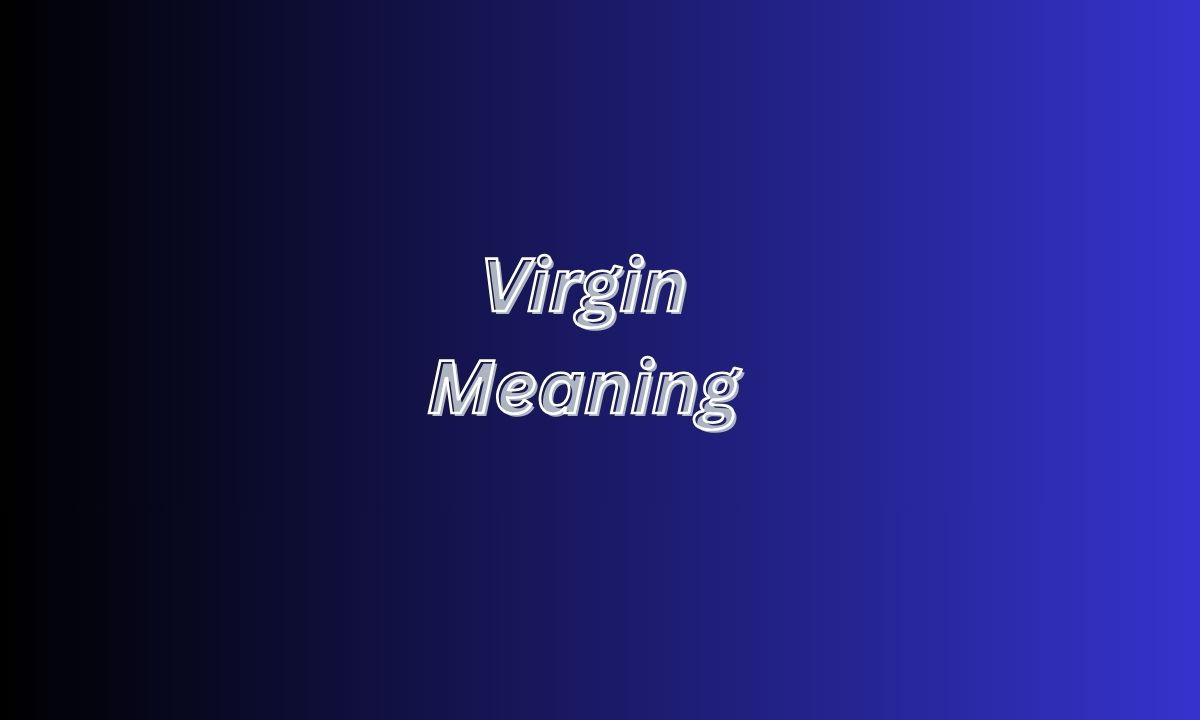The word virgin carries layers of meaning across cultural, historical, and linguistic contexts. It is most commonly understood in relation to purity or someone who has not engaged in sexual experience, yet its applications extend far beyond this primary definition.
In literature, religion, and everyday conversation, virgin is used metaphorically to describe untouched, pure, or original states. For example, virgin forest refers to land unaltered by human activity, emphasizing natural purity and untouched quality.
Understanding virgin meaning requires sensitivity to both context and tone. Its interpretation may differ depending on whether the discussion is academic, casual, professional, or cultural. Recognizing these nuances allows speakers and writers to use the term thoughtfully and appropriately.
Virgin Meaning: Core Definition
At its core, virgin refers to a person, typically a woman, who has not had sexual intercourse. This is the most widely recognized meaning, historically tied to cultural, religious, and societal values of purity, chastity, and moral standing.
However, language evolves, and virgin now extends into broader metaphoric usage. In geography, it can describe virgin land untouched by industrialization. In product marketing, it suggests freshness or originality, such as virgin olive oil.
These meanings demonstrate the flexibility of the word, reflecting how a single term adapts across various contexts. Understanding virgin meaning in each case ensures accurate, respectful, and effective communication.
Virgin Meaning in Text
In written or digital communication, virgin meaning can vary depending on the setting. In casual texting among peers, the term often refers directly to sexual inexperience. However, this usage can be sensitive and must be handled carefully.
In professional or academic writing, virgin is less likely to carry personal connotations. Instead, it is often seen in expressions like virgin territory, emphasizing originality or untouched status, detached from personal identity.
Writers must always assess the audience. A phrase that works in casual chat may seem inappropriate in professional correspondence. Thus, understanding virgin meaning in text requires balancing clarity with respectfulness.
Broader Interpretations of Virgin
- Religious Context: Many faith traditions associate virginity with purity, sacredness, and dedication to spiritual life.
- Metaphoric Context: Virgin ground or virgin material often symbolize freshness, originality, or untouched quality.
- Cultural Context: Across societies, virginity has historically influenced social roles, rituals, and perceptions of honor.
- Commercial Context: Marketers often use virgin to highlight unprocessed or pure products.
These interpretations emphasize that the word is far from one-dimensional. It carries meanings ranging from intimate human experiences to vast environmental descriptions.
Alternatives to the Phrase Virgin
Because virgin meaning can sometimes be sensitive, speakers often prefer alternatives, depending on context. Below are examples divided into polite, professional, and casual tones.
Polite Alternatives
- Pure – Suggests cleanliness and innocence without explicit sexual reference.
- Untouched – Describes something unaltered or in its original state.
- Inexperienced – Focuses on lack of experience without judgment.
- Unfamiliar – Suitable in non-intimate contexts, like new tasks or subjects.
- Pristine – Ideal for describing places or objects in perfect condition.
Professional Alternatives
- Unexplored – Common in business or academic contexts, such as unexplored markets.
- Original – Highlights authenticity and uniqueness.
- Novel – Emphasizes newness or creativity.
- Initial – Appropriate for describing the first stage of work or process.
- Fresh – Used in marketing, design, or product contexts to imply originality.
Casual Alternatives
- Newbie – Informal, playful, referring to beginners in any activity.
- First-timer – Lighthearted, implying someone doing something for the first time.
- Rookie – Casual, often used in sports, jobs, or hobbies.
- Green – Slang for inexperience, but should be used carefully.
- Starter – Non-formal word emphasizing beginning or initial stage.
Choosing the Best Alternative
Selecting the right substitute depends on context, audience, and intent. For instance, pristine works in describing a mountain landscape, but rookie fits better in sports commentary. Similarly, unexplored is appropriate in research, while newbie resonates with online communities.
Tone also matters. A casual phrase may appear disrespectful in professional communication, while a formal word may feel overly rigid in friendly conversation. Being aware of audience expectations ensures that the meaning is conveyed accurately without causing misunderstanding.
Politeness and Sensitivity in Usage
The term virgin often intersects with deeply personal or cultural values. When discussing individuals, discretion is essential. Using respectful alternatives like inexperienced or new to this avoids attaching unnecessary judgment or stigma.
In professional writing, choosing neutral terms protects both clarity and respect. Words like original or fresh convey meaning without personal implications. Politeness in expression ensures communication remains effective, regardless of context.
Examples of Virgin Meaning in Sentences
- The island remains a virgin land, untouched by modern construction.
- She felt nervous as a first-timer on the stage.
- The company explored an unexplored market in renewable energy.
- His approach was novel, bringing fresh ideas to the project.
- The forest is still in its pristine condition.
- The young athlete was a rookie, eager to prove himself.
- The pure form of art carries unaltered expression.
- As a starter, she quickly picked up new skills.
- That product is made from virgin olive oil of the highest quality.
- The researcher entered virgin territory with her groundbreaking work.
- He admitted to being a newbie in photography.
- The mountain snow looked untouched and magical.
- The writer added an original perspective to the debate.
- His green attitude toward business showed lack of experience.
- She was inexperienced, yet confident in her ability to learn.
Conclusion
The phrase virgin meaning encompasses more than a narrow, personal definition. It expands across religious, cultural, environmental, and commercial contexts. By exploring polite, professional, and casual alternatives, speakers can select expressions that best fit the situation while showing sensitivity.
Language thrives on nuance, and understanding the multiple shades of virgin ensures respectful and effective communication. By choosing alternatives thoughtfully, individuals can maintain clarity, avoid misunderstandings, and express ideas with precision.

Elizabeth crafts heartfelt messages for every occasion—anniversary wishes, love notes, prayers, thank-yous, and inspirational greetings—bringing warmth, joy, and connection to your special moments.










